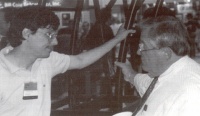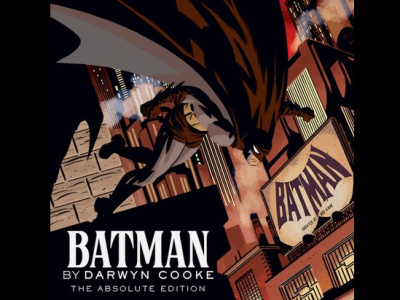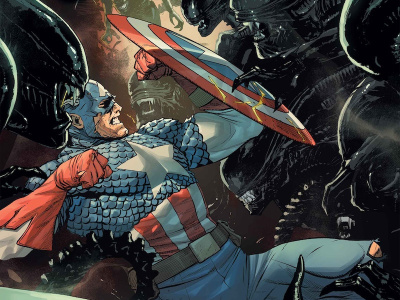
As we were researching the our Blast from the Past article for November, 2004, which covered events in the comics, game, anime, and licensed products industries from 10, 15, and 20 years ago (see 'Blast from the Past'), we came across a key document in the history of the direct comics market. In 1994, Internal Correspondence interviewed Ed Shukin, a pivotal figure in the history of the business. In the seventies, at the origin of the direct market distribution system which currently accounts for 90% of all comics sold, Shukin was in charge of circulation at Marvel Comics, then, as now, the largest comic publisher. Shukin held a variety of other posts in his multi-decade career, including his position as top circulation dog at the now-defunct Tekno Comics when this interview was conducted. We present the interview in two parts. Here is Part 1. For Part 2, see 'The Origin of the Comics Direct Market--Part 2.'
What was the state of the comic book industry when Phil Seuling first proposed the non-returnable direct market to service comic book stores?
The principle forms of distribution were through the ID wholesalers and subscriptions, with about 95% of the sales through the IDs. Phil Seuling's company, Seagate, was a small entity and was not viewed as a serious threat to have much impact on the market. The existing market was slowly eroding: existing publishers, notably Marvel and DC, began to see the Seuling-type operation as necessary for growth if not in fact the survival.
Was Phil Sueling the first to buy or to propose to buy on a nonreturnable basis? A rumor persists that the Donahue brothers were actually the first.
The Donahue brothers preceded my time at Marvel. I know little about them other than having heard their name. Clearly they couldn't grow the business the way Phil Seuling did, and they just disappeared from the scene. Phil clearly was the visionary, and he has to receive the greatest credit for the genesis and the evolution of the market. I first spoke to him in the winter of 1974, and shortly after that we had our first face-to-face meeting. Of course, he was the subject of a lot of internal dialogue at Marvel before that.
Who were the key executives at Marvel at the time who made or approved the decision to sell to Seuling?
The key executives at Marvel were Al Landau, the president, Stan Lee, of course, was there, and the Execuative Vice President was Ivan Snyder, soon to be president of Heroes World. Landau was replaced soon after that by Jim Galton, and it was under Galton's guidance that Marvel began its phenomenal growth. The company continued to grow after Jim left, but there is no question that he was the one individual who put the company on the fast track, and to this day he remains a consultant to Marvel, dealing in a lot of international operations.
Where were most comic books sold in 1974 and 1975?
Well, as I indicated, almost all were being sold on the newsstands. I'm sure you know the cliche, 'Grow or die!' Well, the publishers, at least those with their fingers on the pulse of the market, knew that unless there was some major transition in marketing and vending the product, the morgue was a better bet.
Marvel's sales for 1993 were almost half a billion dollars. Do you remember what they were in 1974?
You really have to compare apples to apples -- raw numbers can be deceiving. Remember that in the 70s comics sold for 25 cents. Today the average price is around two dollars. If you do a quick extrapolation, you find the equivalent 1990 sales were about $60 million at 1970s prices. The sales in the mid-seventies at retail were about 13 and a half million (dollars), with about 70% newsstand, 25% direct, and 5% subscription. In rough terms, I'd say the market quintupled itself over the past twenty years, not a bad record as most industries go.
Do you remember what the sell-through percentage on newsstand comics was in the mid-seventies?
On the newsstands, the mid 30s maybe, maybe the high 30s at the time [currently this is in the teens -- ed].
Did Phil Sueling attempt to get the exclusive rights to distribute to the comic shop market?
Yeah, he came to my office and he made the request that he be appointed the exclusive distributor to the direct market. All the other operations would then become sub-distributors, and they'd have to buy their product from Phil. I refused to do it, and Phil countered in a clearly upset manner that he had already entered into such an agreement with another publisher, and he produced a valid document as proof of that. I still refused, and Phil angrily wanted to know why. My response was simply that I did not want anyone that big with so much control that they could eventually run my business and that I simply would not do it. Phil stalked out of my office and was almost in an abject rage. Some weeks later I learned that the other publisher rescinded their offer. Actually, Phil's excursion to my office didn't serve his interest; it spurred me to promptly structure specific terms. If a prospective distributor could meet those terms, then he was established as an account. It would have happened anyway, it just happened a little faster.
Who were those early distributors from the 70s and early 80s?







